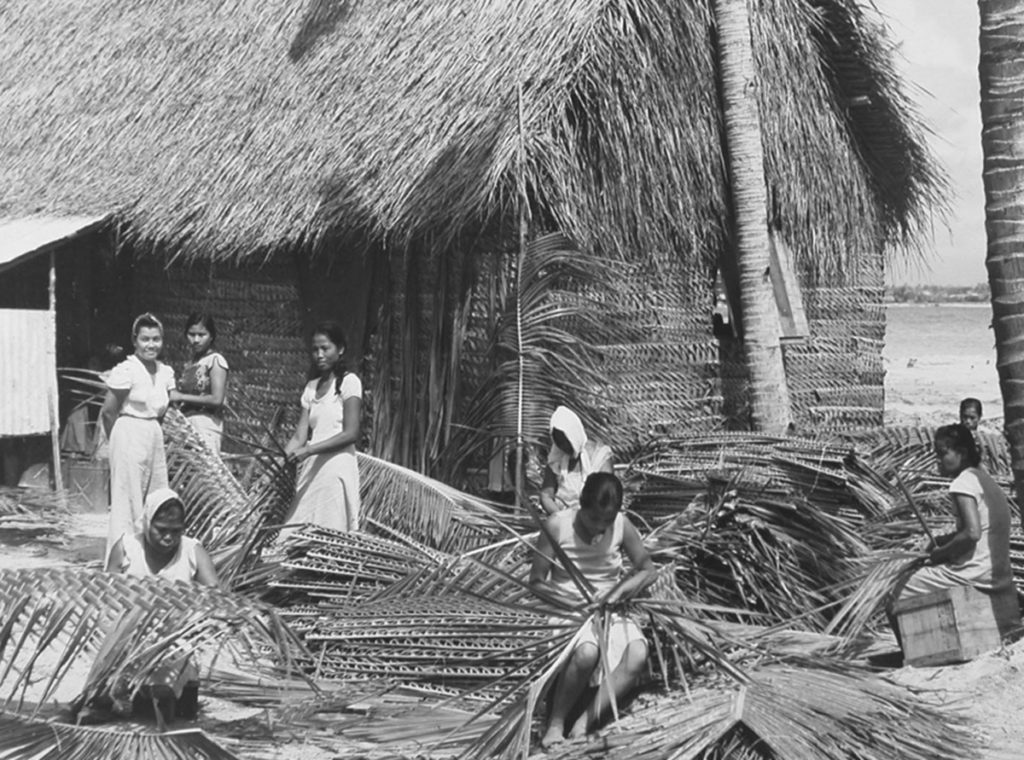
Expression of values
Proverbs are popular sayings, phrases of wisdom, or simply a piece of advice. Proverbs express a people’s basic beliefs and values. CHamoru proverbs are often based on core values and practices of respect, generosity and honesty.
In the 1930s pre-war Guam, anthropologist Laura Thompson documented some single verse proverbs which were later published in her book Guam and Its People:
Single-verse proverbs
| Proverb | Translation |
|---|---|
| Mañga mamuha ni ti gigaomu | Don’t take the catch from another’s trap. |
| Mientras mas megai libidtaña, mas megai babaña. | The more liberty, the more license. |
| Facho’cho ja un cho’chu. | Work and you will eat. |
| Un nota na tentashion nahoñg rason. | A very little temptation is enough. |
| Maulegña mangagao ja ti manae, ki maniae ja ti ma agradesi. | It is better to ask for something and be refused it, than to give and not have it appreciated. |
| An megai sinañganmo megai dinagimu. | The more you talk the more you lie. |
| Chagi ja muñga madagi. | Try it lest you be fooled. |
| Guse’ña un gaca un dakun ki un koho. | It is easier to catch a liar than a cripple. |
| Muñga mañaluda nu I ti tihoñg-mu. | Don’t salute with a hat that doesn’t belong to you. |
Multiple-verse proverbs
Proverbs can also be found in multiple verses called Kantan CHamorita, which is a traditional CHamoru form of an impromptu call-and-response song. A stanza is composed of four lines with the fourth line being the call for the opponent and has to be included into the response. Kantan Chamorita has a single musical composition in which impromptu verses are composed. It was performed in competition between clans or during family gatherings when work was being done.
Kantan Chamorita is a unique form of artistic expression by the CHamoru people. The poetry of the stanzas reflects CHamoru cultural beliefs and practices. Words or phrases took on clever and witty new meanings in regards to the singer’s rival.
Historian Lawrence Cunningham provides examples of Kantan Chamorita proverbs in his book Ancient Chamorro Society:
| Verses | Translation |
|---|---|
| Desde pa’go para mo’na u sen makkata, | From now on life will be more difficult, |
| lina’la’ sa’ taigui I ante ni’, | Lacking the one who, |
| Muna’fanggagai sastansia todu. | Was the life of all. |
| An humanao hao tumalaya, | When you go net-fishing, |
| Chuchule’I talaya-mu, | Take along your net, |
| Yan kontodu I guagua’-mu, | And also your basket, |
| Ya un sisini I kinenne’-mu. | And fill it with the catch. |
| An numa’ piniti hao taotao, | When you hurt somebody, |
| Nangga ma na’ piniti-mu; | Be expecting to be in pain; |
| Maseha apmamam na tiempo, | For even if it takes time, |
| Un apasi sa’ dibi-mu. | Surely you’ll pay for the pain you caused. |
| Gaige I poniten nana, | What sweet pain my mother must have had, |
| Anai hu chochochop sisu’ña: | To feel me sucking at her breast: |
| Siempre guahu u pinitiyi, | Surely she should feel for me, |
| Sa’ guahu finañagu-ña. | Because she gave birth to me. |
| No hai muettu sin achaki. | There is no death without an illness. |
| Taya’ mina’lak sin hinemhum. | There is no brightness without darkness. |
| Taya’ tatautau sin anining. | There is no body without its shadow. |
| Taya’ finatai sin sina’pit. | There is no death without suffering. |
| Taya’ aksion sin rason. | There is no action without a reason. |
Videos
For further reading
Cunningham, Lawrence J. Ancient Chamorro Society. Honolulu: Bess Press, 1992.
Flores, Judy. “Kantan Chamorita.” In Guampedia, last modified 12 May, 2021.
Thompson, Laura M. Guam and Its People. With a Village Journal by Jesus C. Barcinas. 3rd ed. New Jersey: Princeton University Press, 1947.
